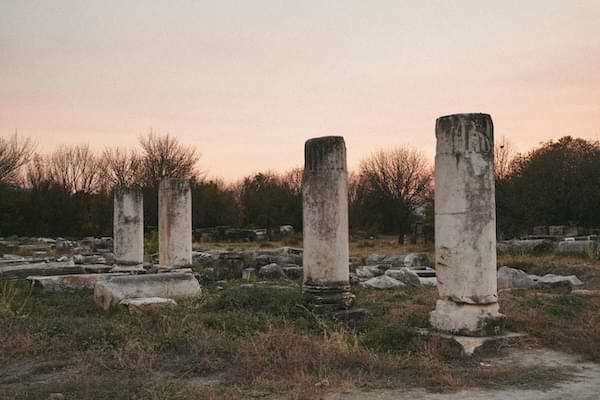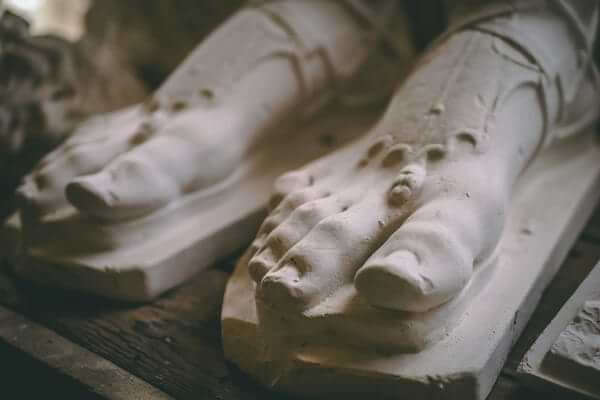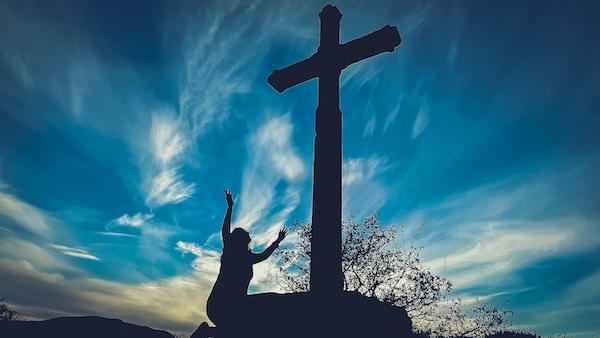The seven churches – Philadelphia
The ancient city of Philadelphia was about thirty miles southeast of ancient Sardis and located along a critical Roman highway. Philadelphia was established on a plateau in a river valley and became a fertile agricultural region. The area was known for producing many of the grapes used for making wines and other important agricultural crops. Unfortunately, this beautiful area was also known for its frequent earthquakes. A devastating earthquake in 17 AD destroyed most of the city. The emperor Tiberius assisted in the rebuilding efforts, and in gratitude, it was renamed Neocaesarea in his honor. The city’s leaders dedicated a temple in his name to commemorate his support further.
We cannot be sure who first established the Christian church in Philadelphia, but we know the church there had a long history of faithfully serving the Lord. Eventually, the entire country fell to Muslim control, yet the city of Philadelphia was able to maintain a Christian population until 1392. Interestingly, many Christians are allowed to live in that region today.
The open door that Jesus would provide
Jesus told John to tell Philadelphia that the words to them were “the words of the holy one, the true one, who has the key of David, who opens and no one will shut, who shuts and no one opens” (Revelation 3:7). Jesus wanted the church to understand that his message to them was borne of his holy character as their Messiah.
Jesus then praised them saying, “I know your works. Behold, I have set before you an open door, which no one is able to shut. I know that you have but little power, and yet you have kept my word and have not denied my name” (Revelation 3:8). Jesus had admonished the church in Sardis for straying from the whole truth, but those in Philadelphia had remained true to the words of Christ and the gospel message. Even though others did not consider them powerful, Jesus would establish “an open door” in Philadelphia, which no one could shut. In other words, Philadelphia would always be a place for people to come and find the truth about how to enter heaven, a truth that would be eternal.
My husband was touring the ancient ruins of Philadelphia several years ago when a government official, a Muslim, handed him a copy of the letter from the Revelation to the church of Philadelphia. This government worker had been provided copies by a Christian organization that asked him to pass them out to those visiting. Philadelphia was still an “open door” more than two millennia later!
The “hour of trial” that will come to the unbelievers
Jesus praised the Christians in Philadelphia for keeping the faith, but then gave a clear warning to those persecuting them. Jesus said, “Behold, I will make those of the synagogue of Satan who say that they are Jews and are not, but lie—behold, I will make them come and bow down before your feet, and they will learn that I have loved you. Because you have kept my word about patient endurance, I will keep you from the hour of trial that is coming on the whole world, to try those who dwell on the earth” (Revelation 3:9–10).
There was a synagogue in Philadelphia, and apparently, the Jewish people in the city had said and done evil things to the Christians in God’s name. Jesus referred to them as a “synagogue of Satan” because their actions were not of God but prompted by Satan. Jesus assured those in Philadelphia that these Jewish believers would one day bow before them and learn that Jesus loved his followers because they had “kept” his word and patiently endured.
Theologians interpret Jesus’ following words (v. 10) differently because we can’t be sure what the “hour of trial” means. We know that the day will come to the whole world and will be a day of judgment. Jesus said that those in the church would be spared the judgment that would come upon the unbelievers. This may be the judgment that occurs at the final coming of Christ, but could also point to the judgment that occurs for everyone upon entering heaven. We know this: Jesus promised that those who believe and faithfully endure on earth will be spared on that day because they are beloved.
Jesus said, “I am coming soon.”
The letter of Revelation was given to John toward the end of the first century. Many of the early Christians had passed away and had even been killed because of their faith in Jesus. So, why did Jesus say, “I am coming soon,” and we are still waiting two thousand years later?
That question will be asked until Jesus returns for the final time. According to historical records, Christians lived in Philadelphia as late as 1392. How many of them took their last breath on earth only to open their eyes and see Jesus coming to take them to heaven!
The older we get, the faster the years seem to speed by. That fact is worrisome to many, but Christians can be encouraged. Jesus gave us this advice about waiting. He said, “I am coming soon. Hold fast what you have, so that no one may seize your crown” (Revelation 3:11). Could it be that “holding fast” in times of suffering will provide us our greatest rewards in heaven? One day, our faithfulness in our most challenging difficulties could be the blessings of our eternal crowns.
To the one who conquers . . .
If you were to visit the ancient ruins of Philadelphia today, you would see very little. Most of the ancient ruins are buried underneath the current, modern city of Alasehir in Turkey. The frequent earthquakes either ruined or buried much of the ancient city. Interestingly, several of the pillars the city was famous for remain standing. These pillars were constructed by carving and stacking one piece upon the next. When the ground shook, the pillars moved with the earth and either remained standing or were able to be rebuilt by stacking the original pieces.
Jesus told the believers in Philadelphia, “The one who conquers, I will make him a pillar in the temple of my God. Never shall he go out of it, and I will write on him the name of my God, and the name of the city of my God, the new Jerusalem, which comes down from my God out of heaven, and my own new name. He who has an ear, let him hear what the Spirit says to the churches” (Revelation 3:12–13).
The early Christians of Philadelphia were promised an “Open Door” that, against all odds, remains open today. AI reports, “While modern-day Alaşehir is primarily a Muslim city, there are still some Christian communities, including both Orthodox and Roman Catholic, and a growing number of evangelical Protestants. The city is also a titular see of the Roman Catholic Church, which indicates its historical significance as a Christian center. Additionally, the ruins of the ancient city, including the Church of St. John, are still preserved and visited by Christian pilgrims.”
The “open door” that Jesus promised remains open today in the Muslim country of Turkey! Many will one day enter heaven because Jesus wrote God’s name and character on them, and now they belong in the “new Jerusalem,” which comes down from God out of heaven. Christians carry the name of Christ now and eternally.
Jesus will come soon. It may turn out to be the final day on earth or our final day on earth. Either way, Jesus will come for us. When he does, we will face the judgment day without fear because we are saved. For now, we are called to remain steadfast in our faith and look forward with hope to the reward we will receive for our “patient endurance” during this lifetime.
Until that day, may our lives lead people to that “Open Door” that Philadelphia was promised. How many people will be in heaven forever because they knew you on earth? Our calling is to obey his word and keep his name. That is how we lead people to that “Open Door,” the gospel message, that no one can ever shut!










